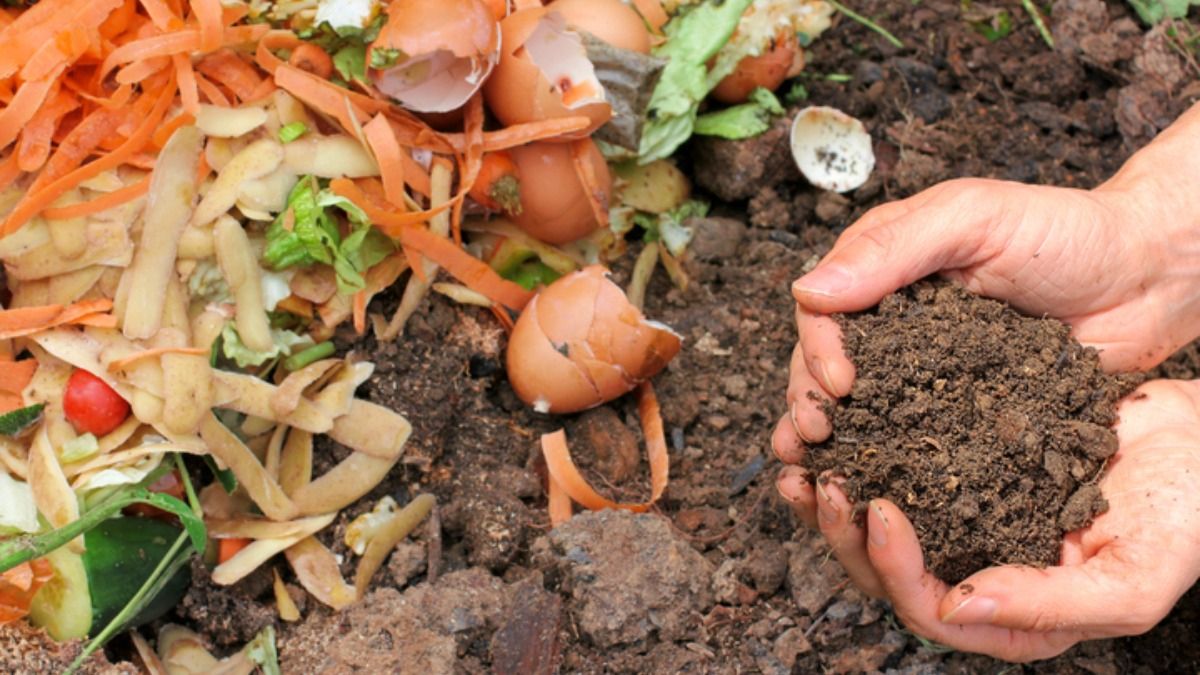Kitchen waste can be a hidden treasure for home gardeners, offering an abundance of nutrients to enrich soil and boost plant growth. Instead of discarding scraps, there are creative and practical ways to use them directly in your garden. Trench composting, mulching, and unique DIY projects are some examples – this guide explores fun and creative ideas for turning kitchen waste into a valuable gardening resource.
Why Use Kitchen Waste in the Garden?
Food scraps are rich in organic matter and nutrients, making them a natural choice for improving soil health. By incorporating kitchen waste into your garden, you reduce landfill contributions and create a sustainable cycle that nourishes your plants. There are simple to advanced methods to use kitchen waste as an accessible way to practice sustainable gardening.
Trench Composting: The No-Fuss Method
Trench composting is one of the simplest ways to use kitchen scraps directly in your garden. This method involves burying organic waste in shallow trenches, where it decomposes naturally over time.
- How It Works: Dig a trench or hole about 12 inches deep in an unused section of your garden bed. Add kitchen scraps like vegetable peels, fruit rinds, and coffee grounds. Cover the waste with soil and let it break down underground.
- Benefits: Trench composting improves soil structure, adds nutrients, and keeps your garden tidy without requiring a traditional kitchen compost bin.
- Tip: Rotate trenches every few weeks to distribute nutrients evenly across your garden.
Mulching with Kitchen Waste
Certain kitchen scraps, like eggshells and coffee grounds, can be repurposed as mulch to protect and nourish plants. Mulch helps retain moisture, regulate soil temperature, and suppress weeds—essential for healthy garden beds.
- Eggshells: Crushed eggshells provide calcium to plants and deter pests like slugs. Scatter them around the base of plants for added protection.
- Coffee Grounds: Sprinkle used coffee grounds directly onto the soil. They enrich the soil with nitrogen and improve its texture.
- Tea Bags: If the bags are compostable, bury them near plant roots for a slow release of nutrients.
These materials can boost soil health and offer an eco-friendly alternative to store-bought mulch.
DIY Fertilizers: ‘Liquid Gold’ for Your Plants
Kitchen waste can be turned into nutrient-packed DIY fertilizers, an easy way to feed your plants without chemicals.
- Banana Peel Tea: Soak banana peels in water for a few days to create a potassium-rich liquid fertilizer. Use this solution to water plants, especially fruiting ones like tomatoes and peppers.
- Vegetable Stock Water: After boiling vegetables, save the nutrient-rich water and let it cool. Use it to hydrate and nourish your garden.
- Eggshell Water: Crush eggshells and steep them in water for 24 hours. The resulting liquid is a great calcium boost for plants.
These simple recipes make kitchen waste a valuable ally in maintaining healthy soil.
Direct Composting with a Kitchen Compost Bin
Using a kitchen compost bin is an excellent option for those who prefer a structured approach. These bins allow you to collect scraps conveniently, keeping them contained until you are ready to use or compost them. By integrating a kitchen composting system into your routine, you can create a steady supply of material to enhance your garden.
Fun and Out-of-the-Box Ideas
Below are some creative projects to try with yoru kitchen waste:
- Vegetable Scrap Gardens: Regrow kitchen scraps like green onion ends, celery bases, or lettuce cores by placing them in water until roots develop. Once established, transplant them into garden beds or planters.
- Compost Pots: Fill biodegradable pots or hollowed-out citrus peels with kitchen scraps and soil. Plant them directly into the garden, where they will decompose and enrich the soil.
- Seed Starters with Eggshells: Use eggshell halves as natural seed-starting containers. When ready, fill them with soil, plant seeds, and transfer the entire shell into the garden.
- Microbial Boosters with Rice Water: The water used to rinse rice is packed with starches that encourage beneficial microbial growth in soil. Pour it around plants for an easy soil boost.
These projects combine sustainability with creativity, making gardening even more enjoyable.
Benefits of Kitchen Waste for Soil Health
Kitchen scraps provide essential nutrients like nitrogen, potassium, and calcium, vital for plant growth. As organic matter decomposes, it improves soil aeration and water retention. Additionally, incorporating waste directly into garden beds attracts earthworms and beneficial microbes, which helps your garden’s ecosystem to thrive.
